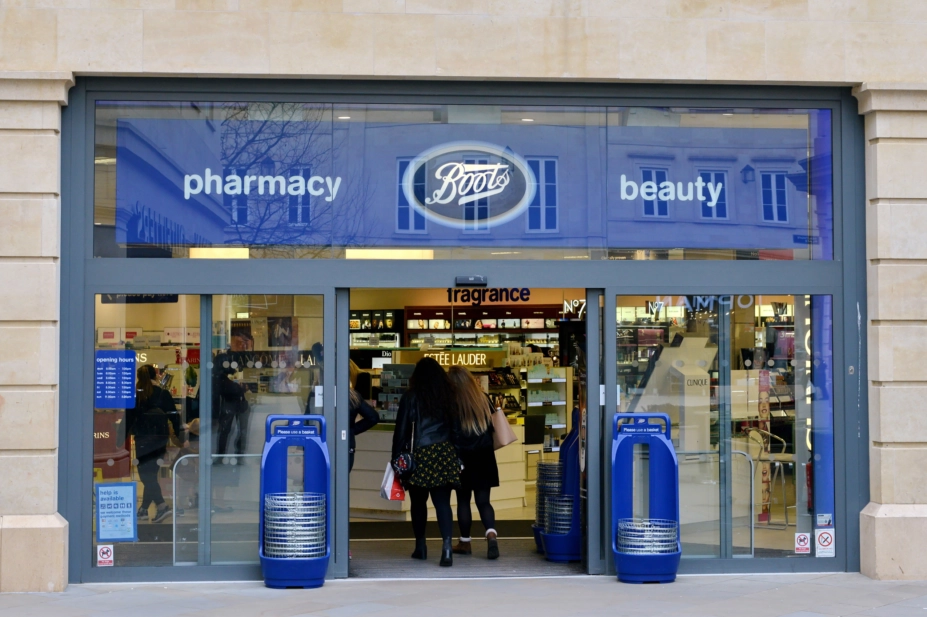
Shutterstock.com
Only Boots-registered pharmacists at levels 5, 6 and 7 and pre-registration pharmacists will be allowed to vote in a ballot to decide whether to de-recognise the Boots Pharmacists’ Association (BPA), the Central Arbitration Committee (CAC) has decided.
The decision was the outcome of a hearing, held in Birmingham on 19 January 2018, to resolve a disagreement between Boots and the Pharmacists’ Defence Association (PDAU) over what constituted the “bargaining unit” of pharmacists working for Boots who should vote on which organisation held bargaining rights for the firm’s pharmacists.
Boots had argued that the ballot constituency should include all employees who were registered as pharmacists and pre-registration graduates employed in the UK, regardless of job title and function, including those employed at area manager level and above.
However, the PDAU held the position that only pharmacists who work exclusively or routinely in patient-facing roles should be included in the ballot.
Both parties requested that the decision be made at a hearing, rather than on paper, so that witnesses could be called and cross-examined.
“The scope of the BPA/Boots agreement is about pharmacists who work mainly in patient facing roles and we are pleased the court accepted our interpretation of this document,” said Mark Pitt, assistant general secretary at the PDAU.
“The company’s attempt to also give a vote to very senior management and those who, while still registered pharmacists, work in other head office roles remote from pharmacy had the potential to influence the ballot and allow the status quo to continue,” he added.
The CAC’s decision was that “the workers for whom the Employer and the Union have agreed that the Union may collectively bargain is the registered and pre-registration pharmacists at levels 5, 6 and 7 who are employed by the Employer.
“It is those workers only who must be balloted and asked whether they wish the bargaining arrangements should be ended,” it concluded.
Levels 5, 6, and 7 at Boots are defined in the court judgement as ranging from store based and relief pharmacists, to large store managers and professional standards managers, but do not include senior managers, area managers and regional pharmacy managers.
“At Boots UK, we respect the right of our colleagues to become members of a trade body of their choice,” said Richard Bradley, pharmacy director at Boots UK.
“The CAC has now announced its decision that only registered and pre-registration pharmacists at levels 5, 6 and 7 and who are employed by Boots at the time of the ballot will be eligible to vote in the ballot to determine the future of the BPA’s relationship with Boots.
“We continue to believe that maintaining our relationship with the BPA and working with our Pharmacist Partnership Panel is the most inclusive way of making sure all our pharmacists have a voice. We will, of course, be making sure that our pharmacists have all the information they need to understand exactly what will be happening and when,” he added.
The CAC will now appoint a Qualified Independent Person (QIP) to oversee the ballot process. The QIP will be responsible for verifying the membership of the bargaining unit and setting out the process for the ballot to take place.
Timeline of events
November 2017:
The CAC publishes its full decision on the BPA de-recognition case .
August 2017:
PDAU urges Boots pharmacists to pledge support for legal action .
July 2017:
Six Boots pharmacists apply to CAC to derecognise BPA .
February 2017: Court of Appeal upholds High Court’s decision.
November 2016: PDAU appeals High Court ruling.
September 2014: The High Court rules that the UK and European laws are compatible and the only remaining course of action is for a Boots pharmacist to seek derecognition of the BPA.
July 2014: PDAU makes an application for a declaration of incompatibility of UK law with the European Convention on Human Rights on the back of the High Court’s ruling. A further hearing is held after government intervention.
22 March 2012: Boots director of pharmacy writes to the PDAU saying it does not accept the proposal for formal recognition as it already has a formal, productive and effective way of working with the BPA. The PDAU proceeds with its application to the CAC.
1 March 2012: Boots prepares an agreement with the Boots Pharmacists’ Association (BPA), signed by both parties on 1 March 2012, which prohibits discussions on terms and conditions of employment by the PDAU.
February 2012: On 14 February, PDAU formally requests recognition by statutory procedure (via the Central Arbitration Committee [CAC]) with Boots. PDAU formally withdraws its application at Boots’s request.
10 February 2012: Boots again refuses PDAU’s request.
19 January 2012:
PDAU asks for voluntary recognition again.
March 2011: Pharmacists’ Defence Association Union (PDAU) writes to Boots asking the company to voluntarily recognise it for collective bargaining purposes. Boots refuses request.


